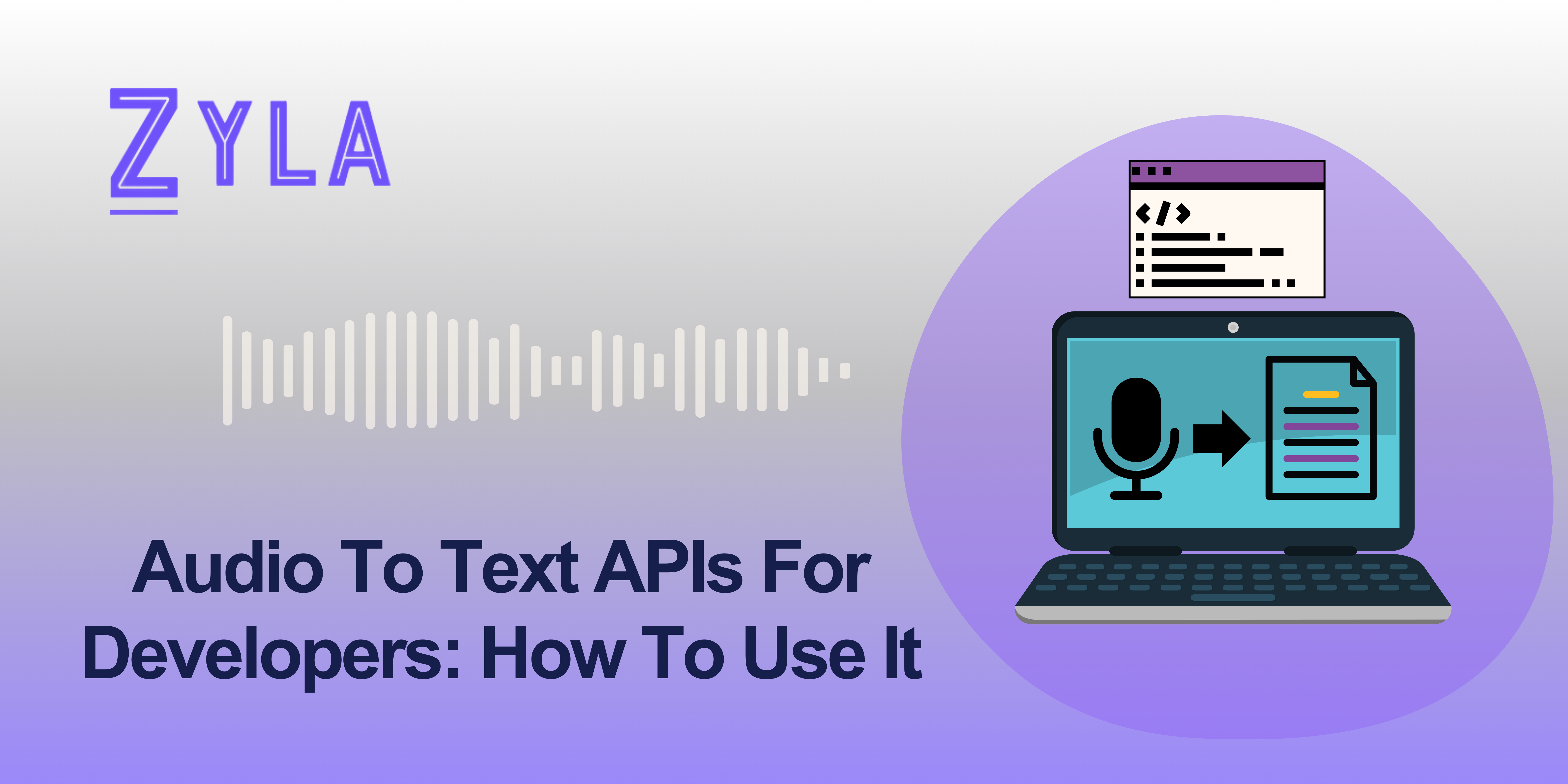Audio To Text APIs For Developers: How To Use It

In the realm of software development, harnessing the power of Audio to Text APIs opens up a plethora of possibilities for creating engaging and innovative applications. Luckily, nowadays you can easily access one of these through the best API marketplace, Zyla API Hub. And why would you? Easy, because, these APIs serve as the backbone for converting spoken words into written text, offering developers the tools they need to enhance user experiences and streamline communication processes.
Understanding Audio to Text Conversion
Audio to text conversion is the process of transcribing spoken words from audio recordings into written text format. This functionality relies on sophisticated algorithms that analyze the audio input and extract meaningful linguistic content. In today's digital age, where multimedia content is ubiquitous, Audio to Text APIs play a crucial role in enabling seamless interaction and accessibility.
Getting Started with Audio to Text APIs
To embark on your journey with Audio to Text APIs, the first step is to choose a reliable API marketplace that offers these essential tools. Selecting the right API for your project is equally important, considering factors such as accuracy, language support, and pricing. Luckily for you, we know the perfect starter point: Zyla API Hub.
Exploring Zyla API Hub for Audio to Text APIs
Zyla API Hub stands out as a reputable marketplace for accessing top-notch Audio to Text APIs. With a diverse selection of APIs curated from leading providers, Zyla API Hub serves as a one-stop destination for developers seeking robust transcription solutions. Its reputation for reliability and user-friendly interface makes it a preferred choice among developers and businesses alike.
Benefits of Using Zyla API Hub
By leveraging Zyla API Hub, developers gain access to a wide range of Audio to Text APIs that are tailored to their specific needs. Whether you're building a mobile app, a web platform, or an enterprise solution, Zyla API Hub provides the tools and resources needed to succeed. Furthermore, comprehensive support and documentation ensure a smooth integration process for developers at all skill levels.
How to Use Audio to Text APIs from Zyla API Hub
1. Signing Up at Zyla API Hub. Getting started with Zyla API Hub is a straightforward process. Simply create an account on the platform by providing basic information such as your name, email address, and password. Once registered, you'll need to verify your account through a confirmation email or SMS code.
2. Obtaining and Authenticating Your API Key. After successfully signing up, the next step is to obtain your API key, which serves as a unique identifier for accessing Zyla API Hub's services. Generating an API key is typically done through the platform's dashboard, where you'll find options to create and manage keys. Once obtained, it's essential to secure your API key by following best practices for authentication and authorization.
3. Integrating Audio to Text APIs into Your Project. With your API key in hand, you can now explore the available Audio to Text APIs offered by Zyla API Hub. Take the time to evaluate each option based on criteria such as accuracy, language support, pricing plans, and additional features. Select the API that best aligns with your project requirements and objectives.
4. Making API Calls for Audio to Text Conversion. Once you've chosen the desired API, it's time to integrate it into your project. Begin by making API calls for audio to text conversion, providing the necessary information such as audio files or URLs. Handle the API responses accordingly, ensuring that your application can process both successful conversions and error cases gracefully.
Final Thoughts
From applications to logistics solutions, Audio to Text APIs transform your app into an engaging experience, offering users seamless access to transcribed content. With the comprehensive support and reliable services offered by Zyla API Hub, developers can confidently navigate the world of audio to text conversion, driving innovation and efficiency in their projects.







